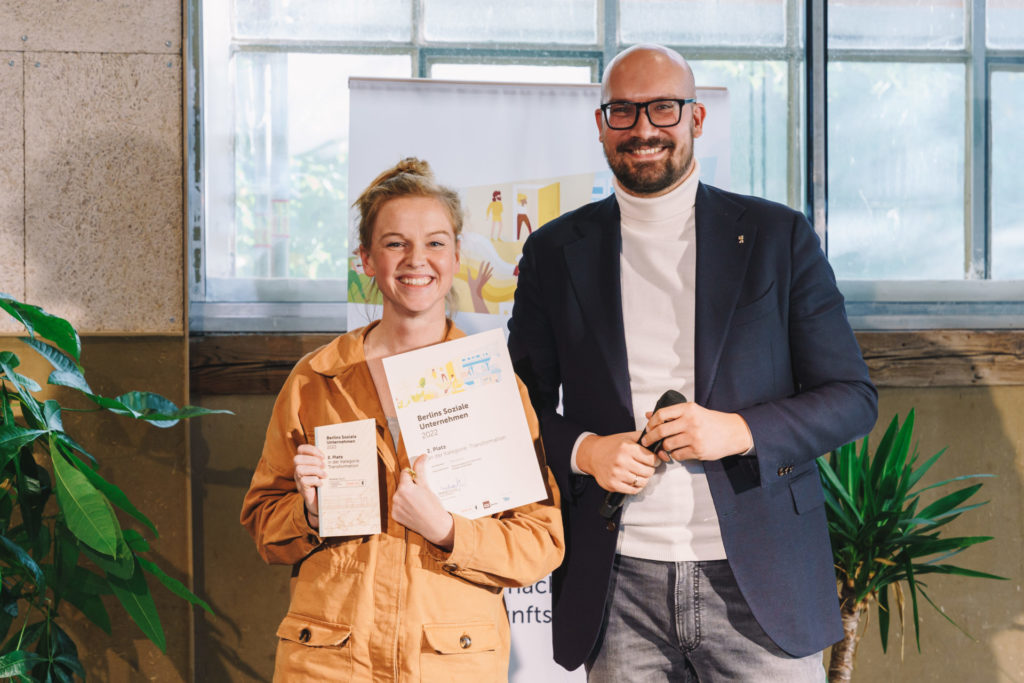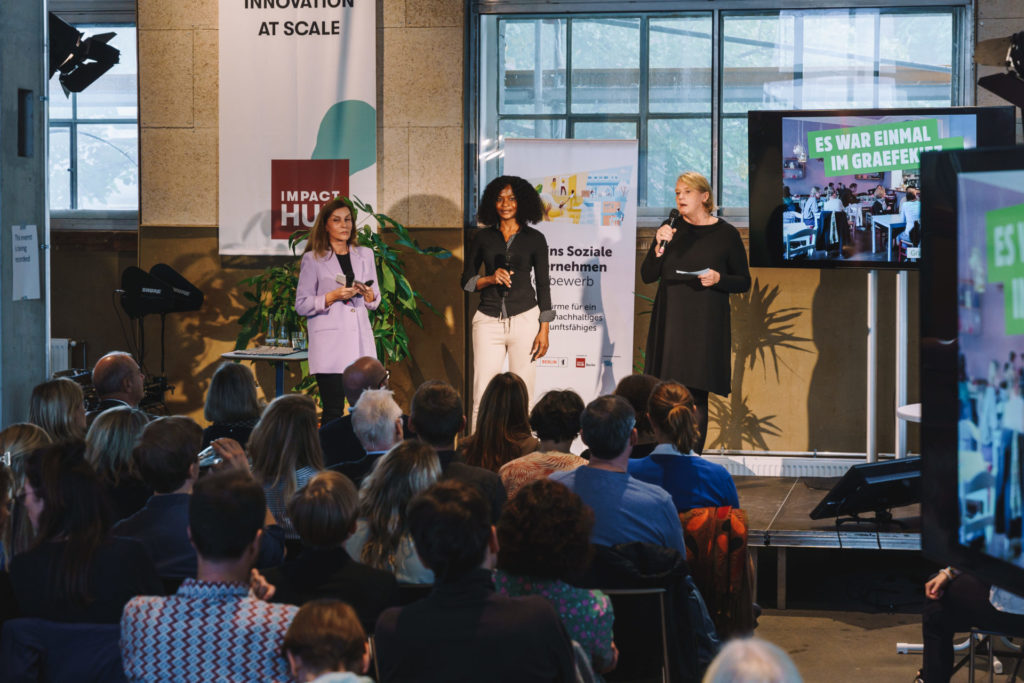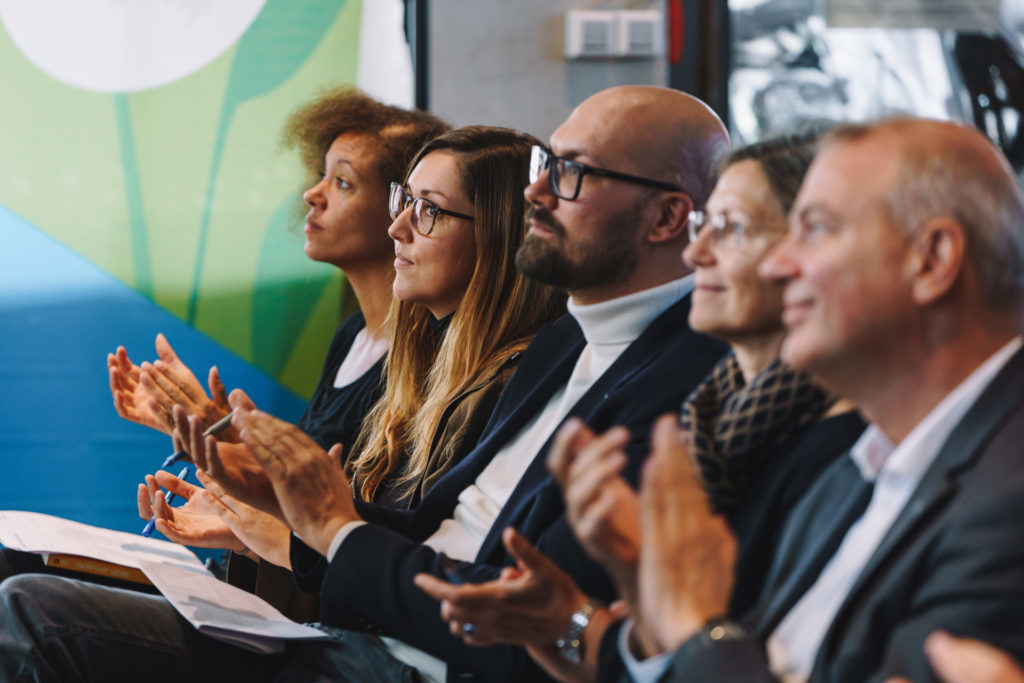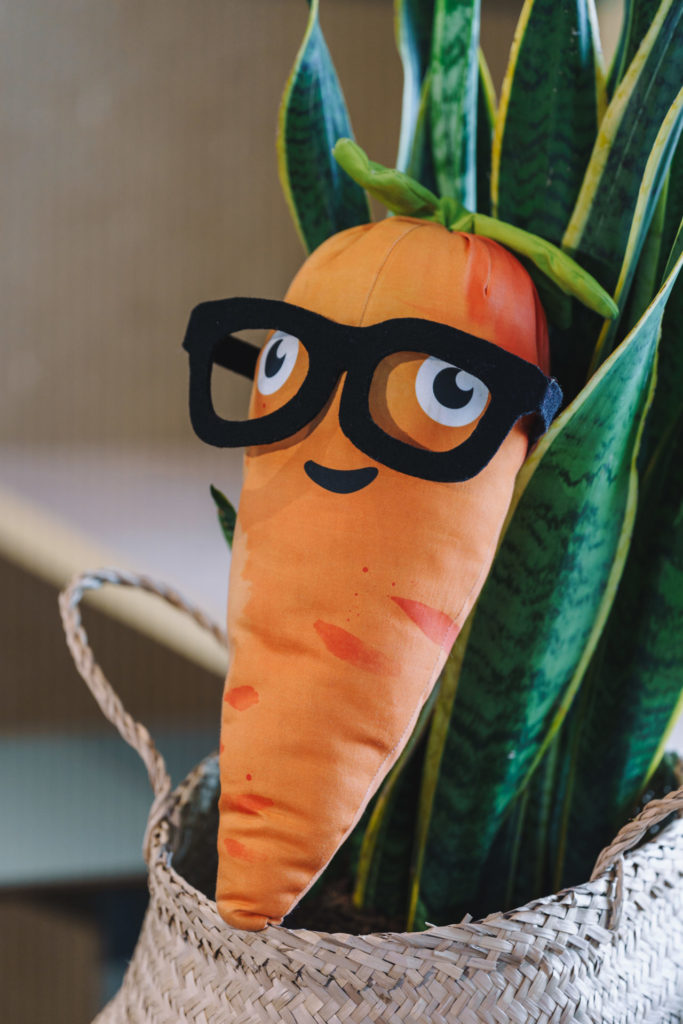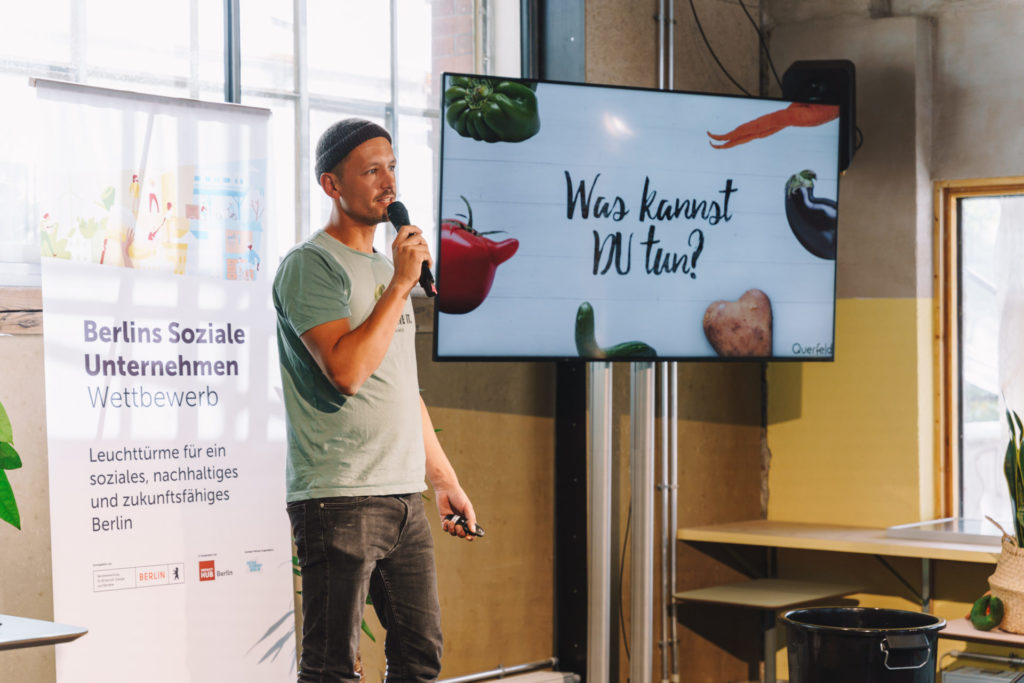Berlins Soziale Unternehmen 2022: Meet the Social Impact Enterprises Changing the World
In September the Berlin Senate Department for Economics, Energy and Public Enterprises celebrated nine outstanding social enterprises with a proven track record of positive impact in and around Berlin.
In partnership with Impact Hub Berlin and Social Economy Berlin, the Berlins Soziale Unternehmen award is the first of its kind, but hopes to encourage more of Berlin’s start-ups, ventures and enterprises to make social impact an important part of their growth.
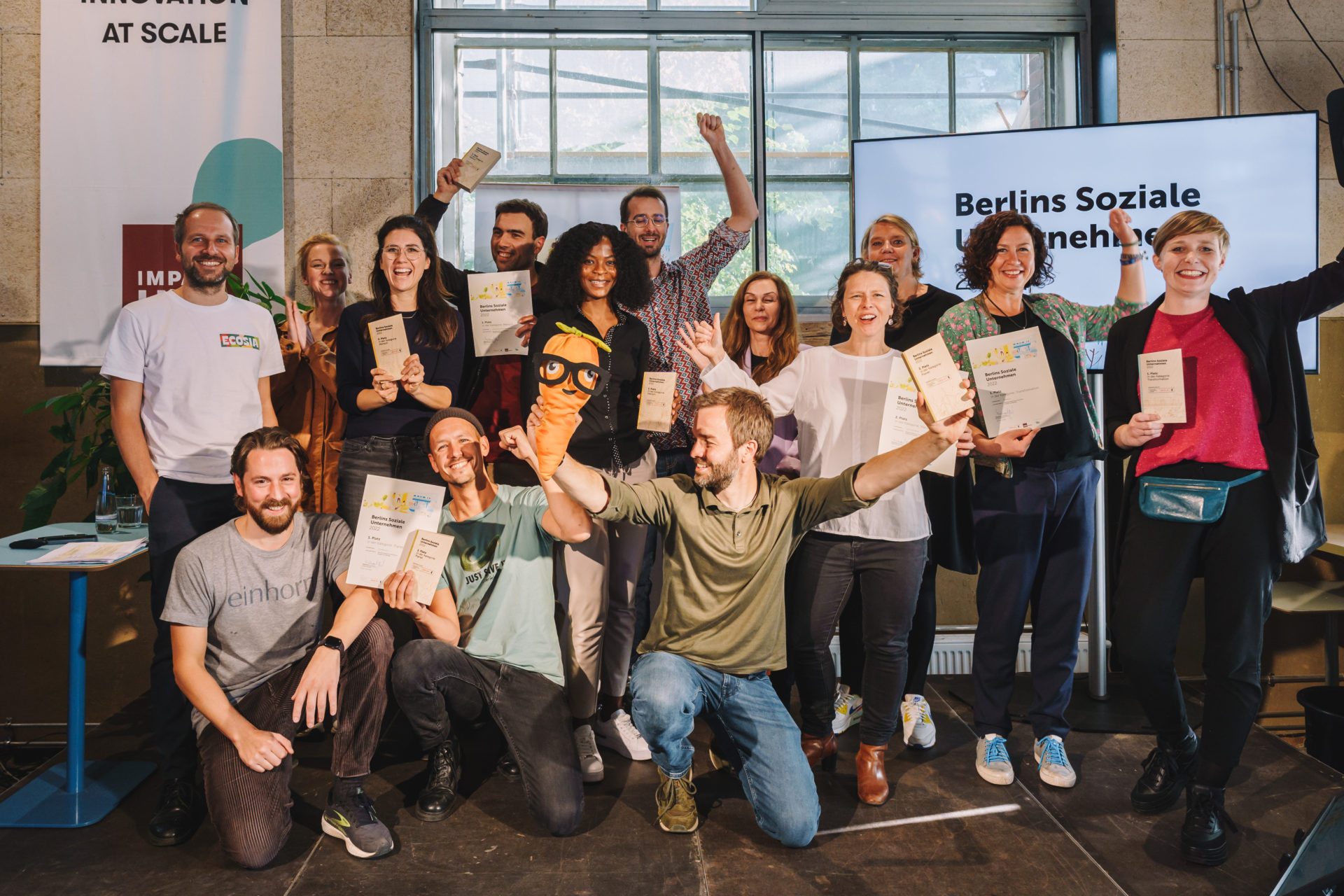
The Berlins Soziale Unternehmen: Meet the Enterprises
Following a round of open nominations, nine enterprises were selected. Whether it was a local collective farm or a global company with a focus on circular economy, anyone in Berlin could nominate their favourites. The only criteria was the established social enterprises are committed to a social, sustainable and future-proof Berlin.
From 300+ nominations nine enterprises were selected and spread across three categories; People, Planet and Transformation – each tackling social impact from a different perspective. The overall winner of each category received €10,000 from the Berlin Senate. The second place winner walked away with €3,000. All nine finalists received a Connect membership to Impact Hub Berlin’s sustainable co-working space in Berlin-Neukölln.
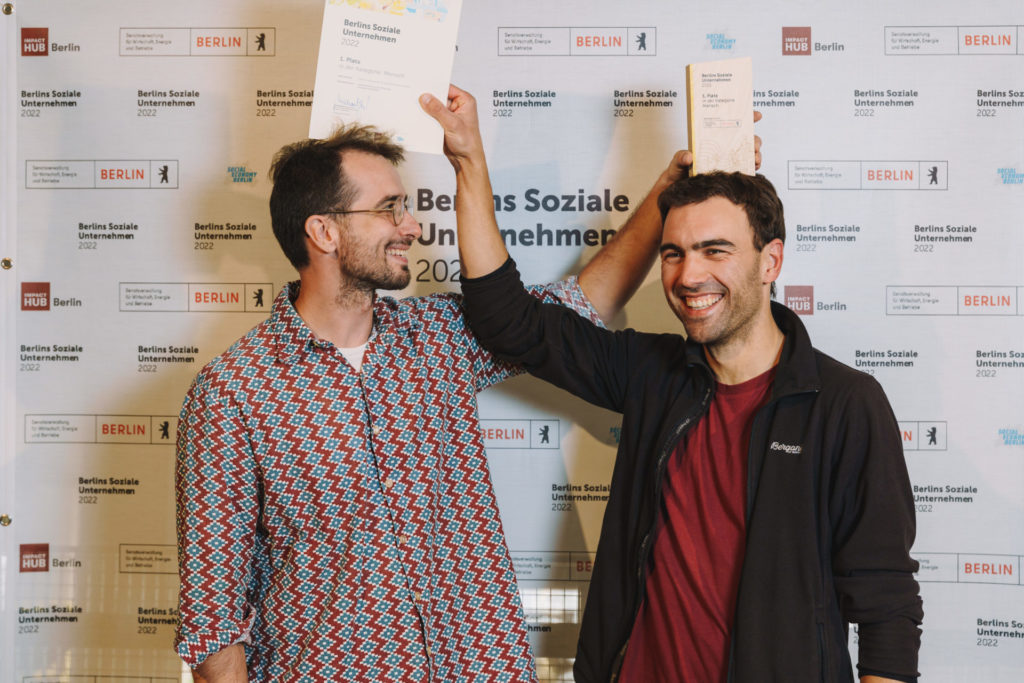
Category People - Social enterprise for a life together
1st Place: GSP eG
Committed to ecological sustainability, social justice, inclusion and a democratic economy, GSP is a cooperative that is building residential and commercial projects with a focus on environmentally-friendly mobility, renewable energy and the circular economy.
Their first three projects are all located around Berlin; Wallensteinstrasse in Berlin-Karlshorst will be home to 190 apartments, a day-care center and other spaces for communal, social and cultural use. Werlseestrasse in Berlin-Friedrichshagen will see a new social and ecological building with 12 residential units for around 30 people by 2025. Lastly the former “Konsumvereins Vorwärts“ in Luckenwalde will be transformed into new residential and commercial buildings, with the warehouse expanded and modernized.
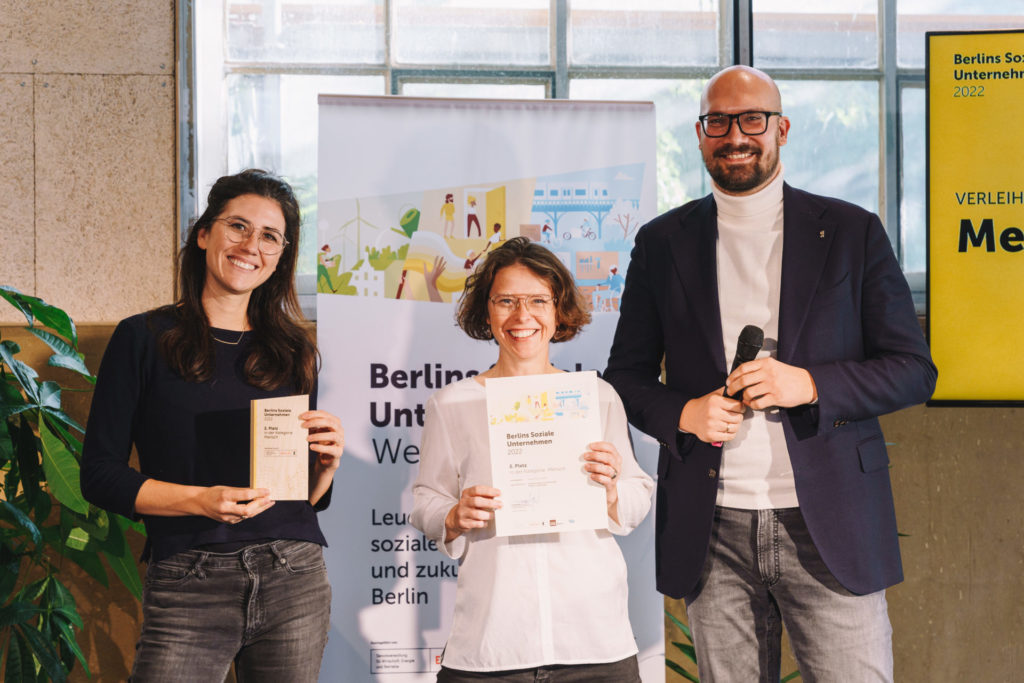
2nd Place: Junge Tüftler
Junge Tüftler encourages children to step into tech and programming by providing a digital education so they can get ahead and thrive in our technologically advancing world.
They have created a framework for children to learn from each other through different projects. They are encouraged to try new things, awaken the spirit of invention and break new ground through trial and error. The creative process underlies all project-oriented work at Junge Tüftler and trains important skills for the 21st century.
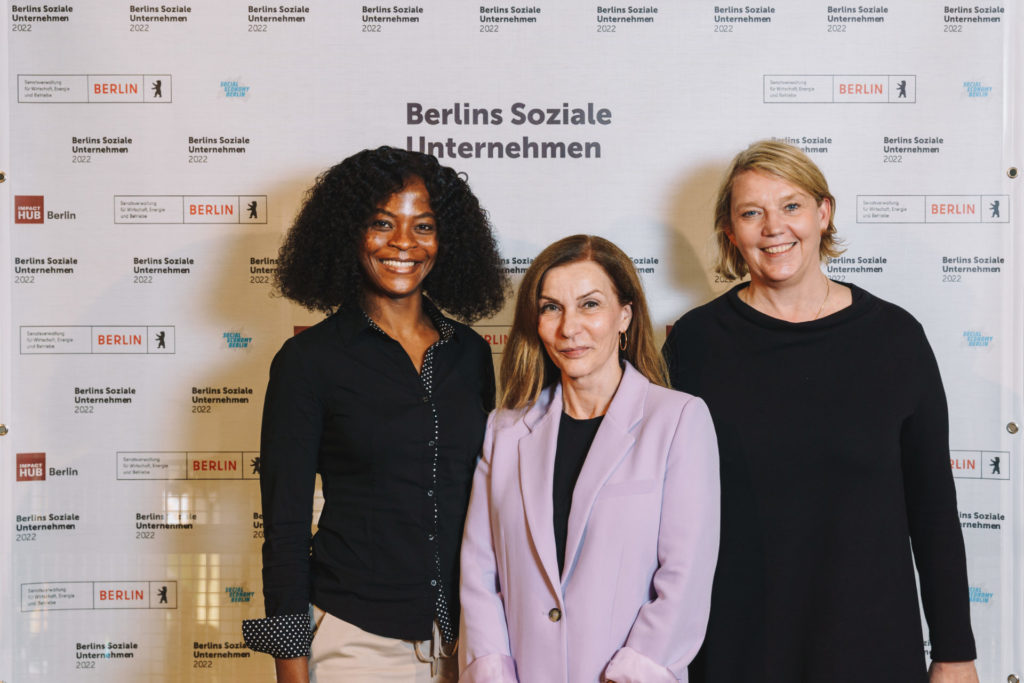
3rd Place: Graefewirtschaft
Graefewirtschaft is an intercultural social enterprise offering high-quality school meals in and around Berlin. The enterprise purchases high-quality products from selected suppliers and cooperates with local organic farms to provide meals that are ecological and economically sustainable.
To do this Graefewirtschaft only purchases fresh, seasonal, and regional organic products that can be delivered fresh every day and processed directly. They guarantee short downtimes and short transport routes from decentralized kitchens to make sure schools receive fresh, healthy meals every day.
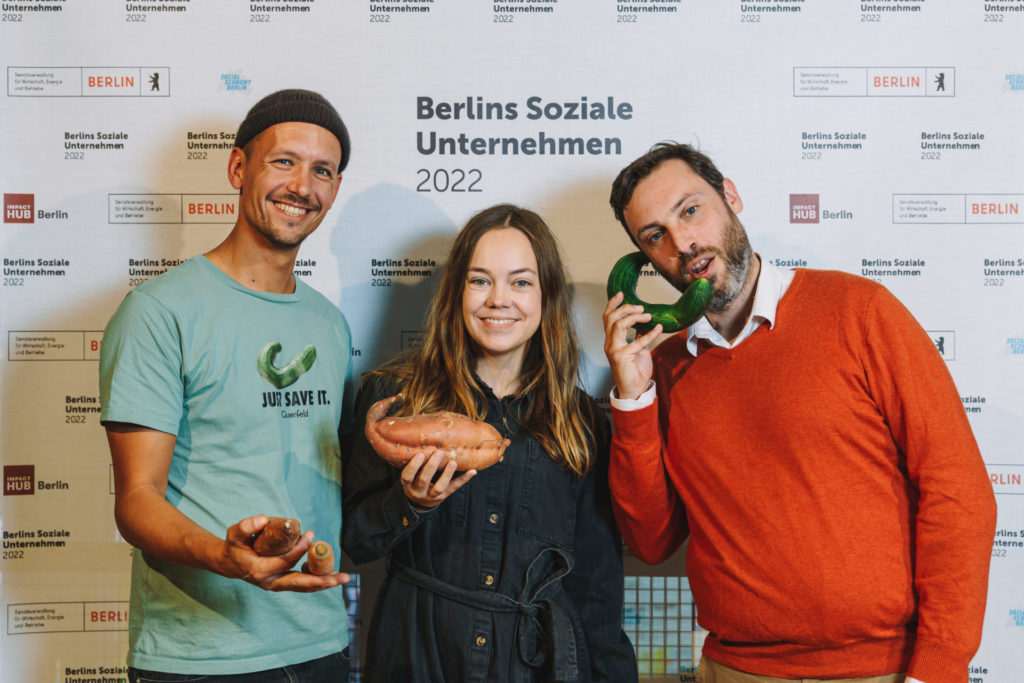
Category Planet - Social enterprise for a good life on earth
1st Place: Querfeld
Querfeld’s mission is to contribute to a fair and sustainable food supply by redesigning how we think about and purchase groceries. The company was founded in 2016 as a way to combat the problem of food waste, and has since become the most sustainable way to buy fruits and vegetables online.
Querfeld’s vision is expressed through their five points of sustainability: regionality, organic, plastic-free, eco-friendly delivery and no food waste. The company also prides itself on its transparency, allowing their customers to know exactly where their food is coming from and how it was produced. They also rescue food rejected by supermarkets – "two-legged carrots," as marketing manager Donal Peoples puts it.
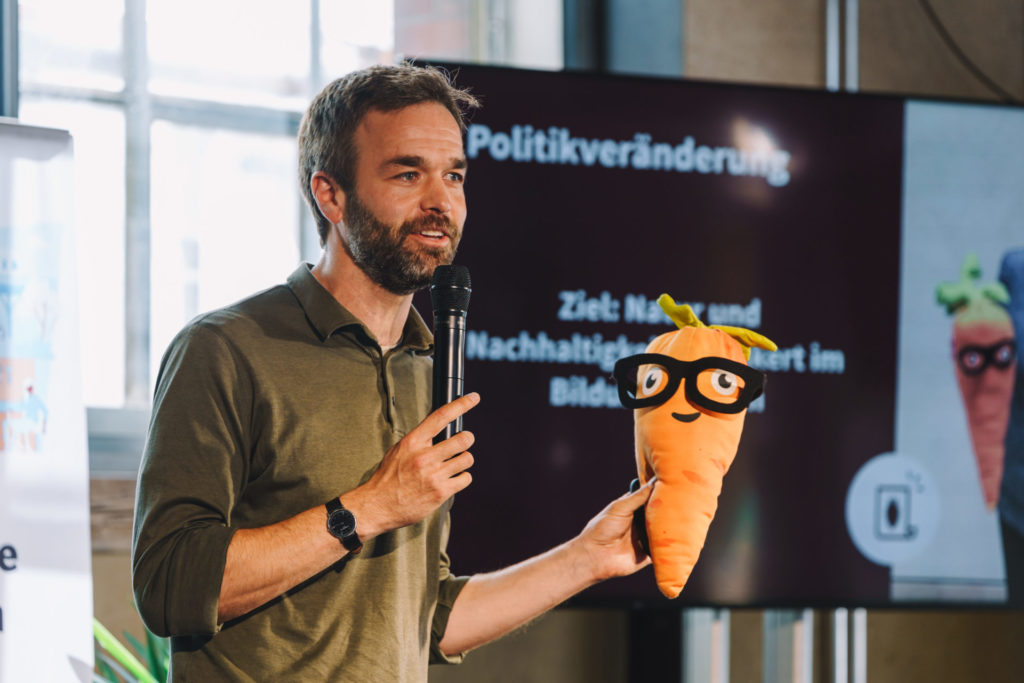
2nd Place: Acker
Another business dedicated to eliminating food waste, Acker eV offers programmes, classes and education on farming and sustainability through their multiple award-winning programmes such as “GemüseAckerdemie” and “AckerRacker”.
The company has established vegetable farms all over Germany, creating a hands-on and natural place of learning for over 1200 schools, day-care centers and universities. Their mission is to promote a society that values nature, farming and sustainable food sources.
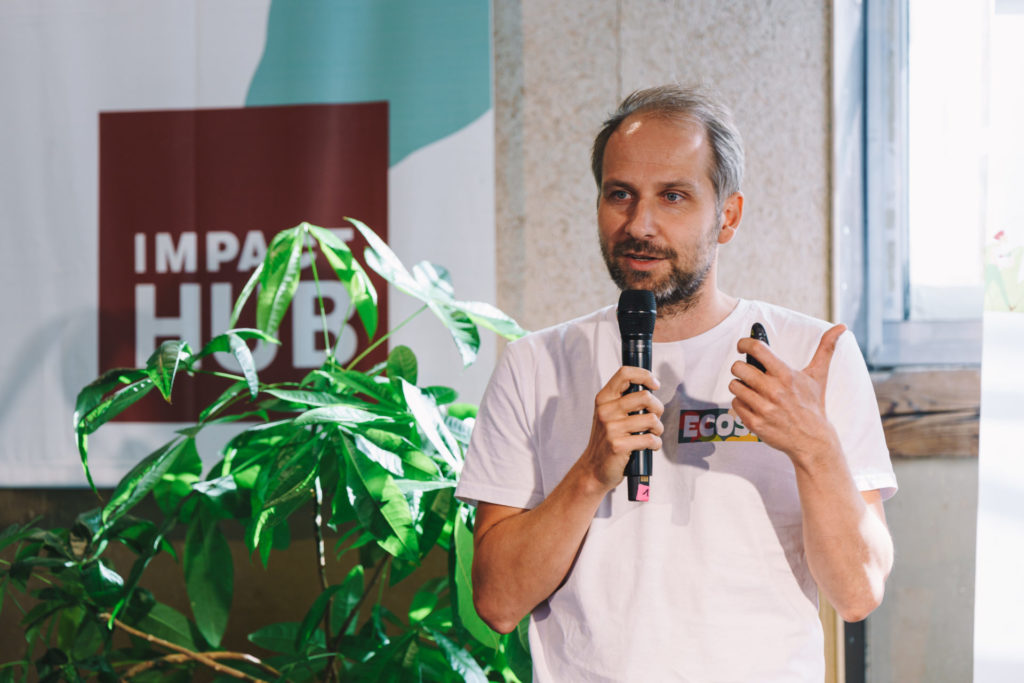
3rd Place: Ecosia
For every query run through Ecosia’s search engine, the enterprise plants a tree to help combat deforestation and protect the world’s rainforests. Through ad revenue accumulated via web searches, Ecosia can channel that revenue into direct action – planting trees at multiple locations all over the world.
The Berlin-based enterprise has now planted over 155 million trees since the search engine launched in 2009. The company is now a non-profit fully dedicated to being a "tree-planting, purpose-driven, transparent, privacy-focussed, tax-paying, not-for-profit company."
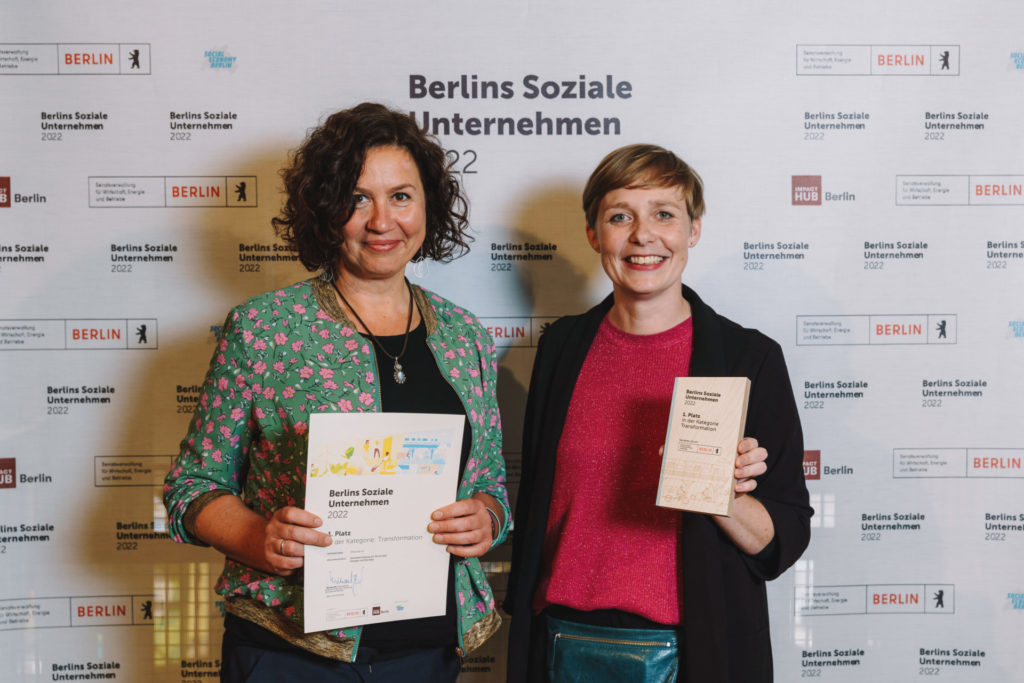
Category Transformation - Social enterprise for tomorrow's economy
1st Place: SmartDE
Smart has developed a brand new and innovative work model for self-employed workers and collectives which aims to improve the social, financial and administrative security of its members. By employing freelancers through the cooperative, self-employed individuals have easier access to public health, pension and unemployment insurance.
Smart Germany is part of a European network with a total of over 100,000 members in Belgium, France, Italy, Spain, Austria, Sweden and the Netherlands. As a member of Smart in Germany, members share services, infrastructure and costs in the spirit of solidarity.
2nd Place: Klara Grün
This cleaning company is on a mission to prove that cleanliness can be both natural, effective and 100% biodegradable. Many conventional “power cleaners” contain substances that can be harmful to health and the environment, but Klara Grün provides a completely ecological cleaning service – from the products and methods they use through to the way they conduct their business and the employment they provide.
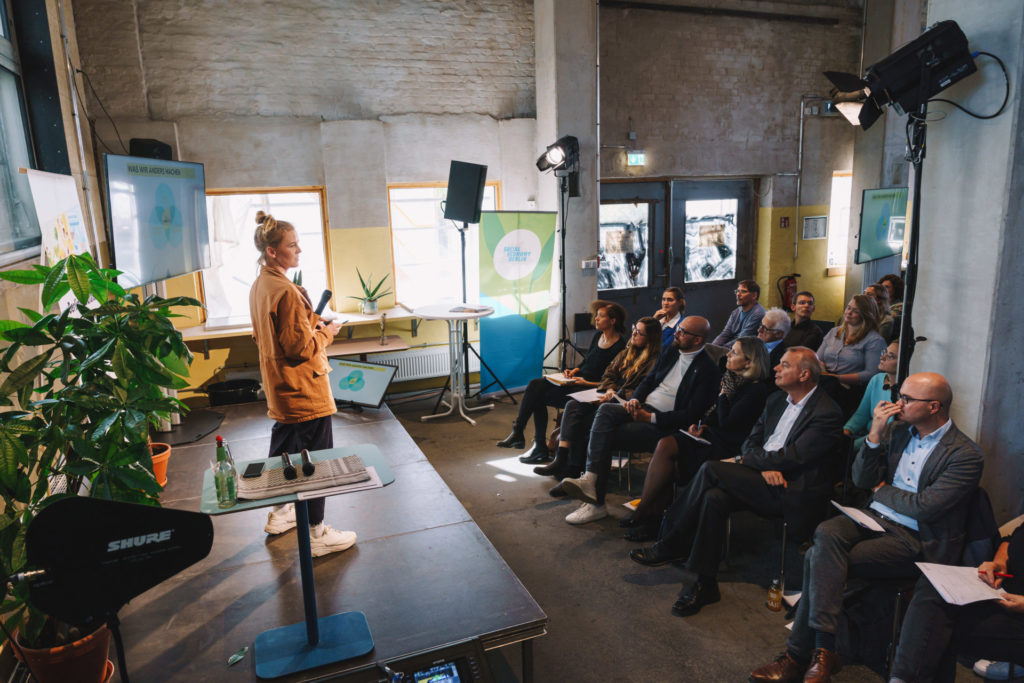
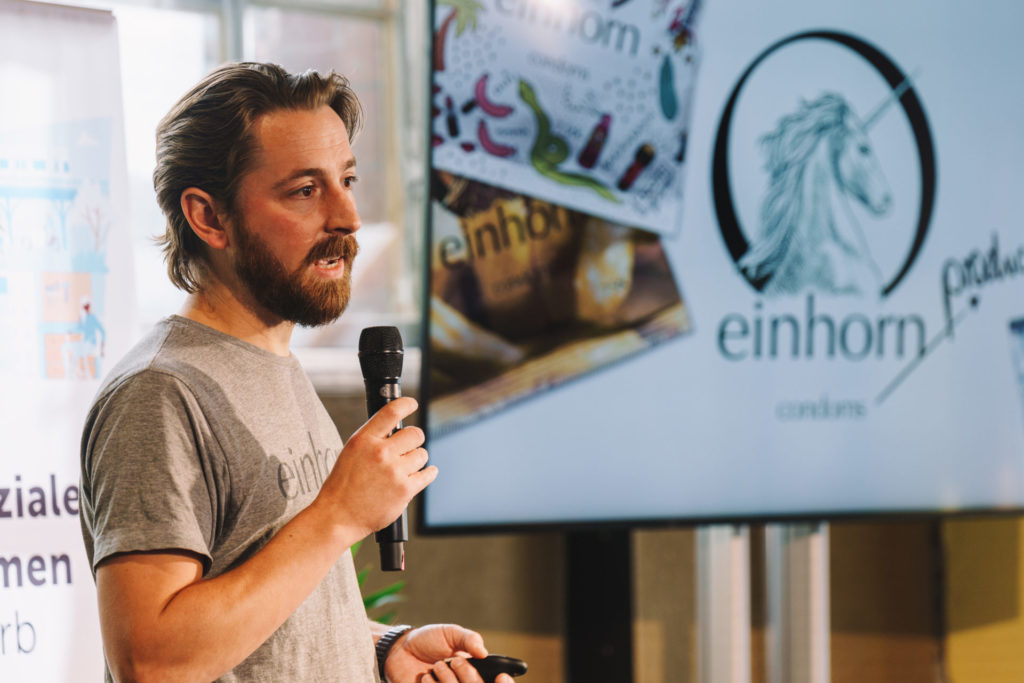
3rd Place: einhorn
einhorn creates eco-friendly contraceptive and period products based around fairness and sustainability – in their words, “fairstainability”. The latex they use is ethically sourced from rubber trees in Thailand, while the cotton in their tampons is free from plastics and chemicals which are regularly used during usual production. The result is einhorn’s 100% organic condoms and tampons that are both effective and sustainable.
The enterprise also supports feminist NGOs, collectives, activists and initiatives by providing financial support and donations accumulated through each product purchased.
The Berlins Soziale Unternehmen award at Impact Hub Berlin
The winners and runners-up were decided by a five-member jury made up of State Secretary Michael Biel, Simon Margraf (Chamber of Industry and Commerce Berlin), Angeliki Krisilion (Investment Bank Berlin), Dr. Hedda Ofoole Knoll and Margitta Haertel (Pfefferwerk Foundation).
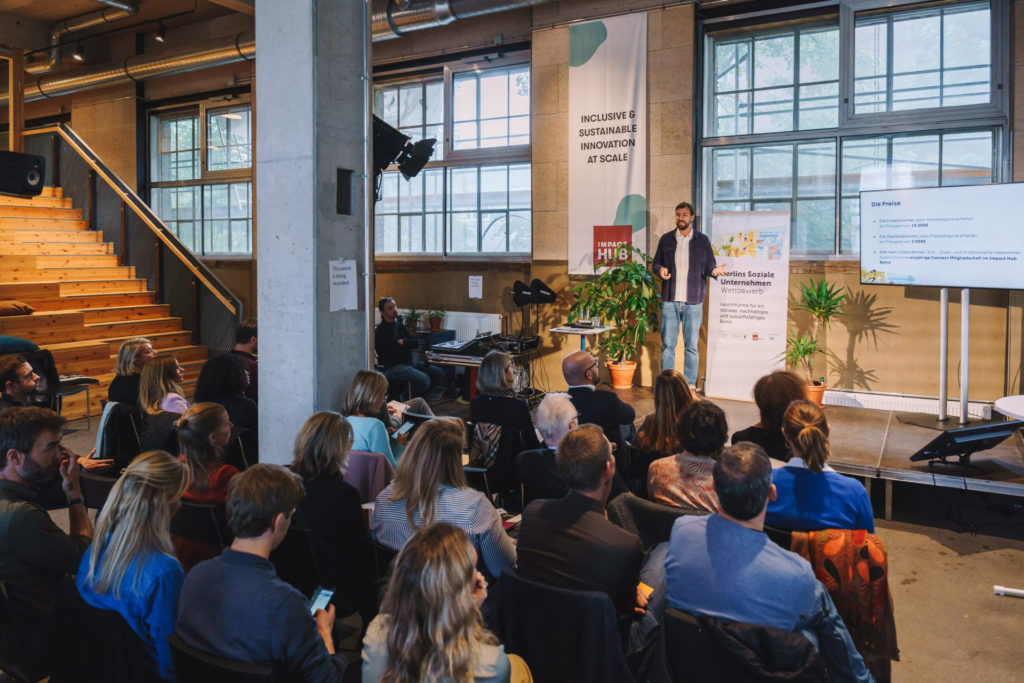
Each social impact venture presented their enterprise to the panel during the day, which included many heartwarming moments from the community. Querfeld brought a crate of potatoes on stage, Acker used a plush carrot to tell the story of how they impacted the lives of two children with their business, and einhorn brought lots of cute and colourful tampons and condoms as gifts. What’s more, the award was created using recycled wood from Impact Hub Berlin’s construction site.
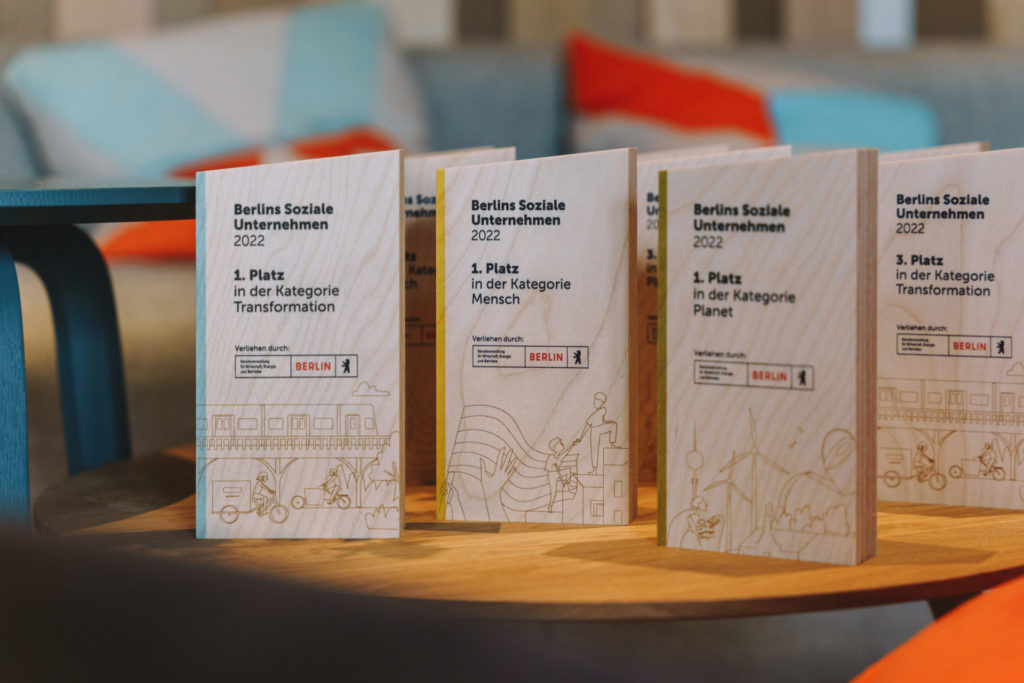
In the spirit of collaboration between the nominees, the finalists in the ‘People’ category decided to split the prize money evenly to honor all three enterprises. The businesses in the ‘Planet’ category also decided to do things a little differently – they decided to pool the prize money together to eventually put towards a brand new joint project.
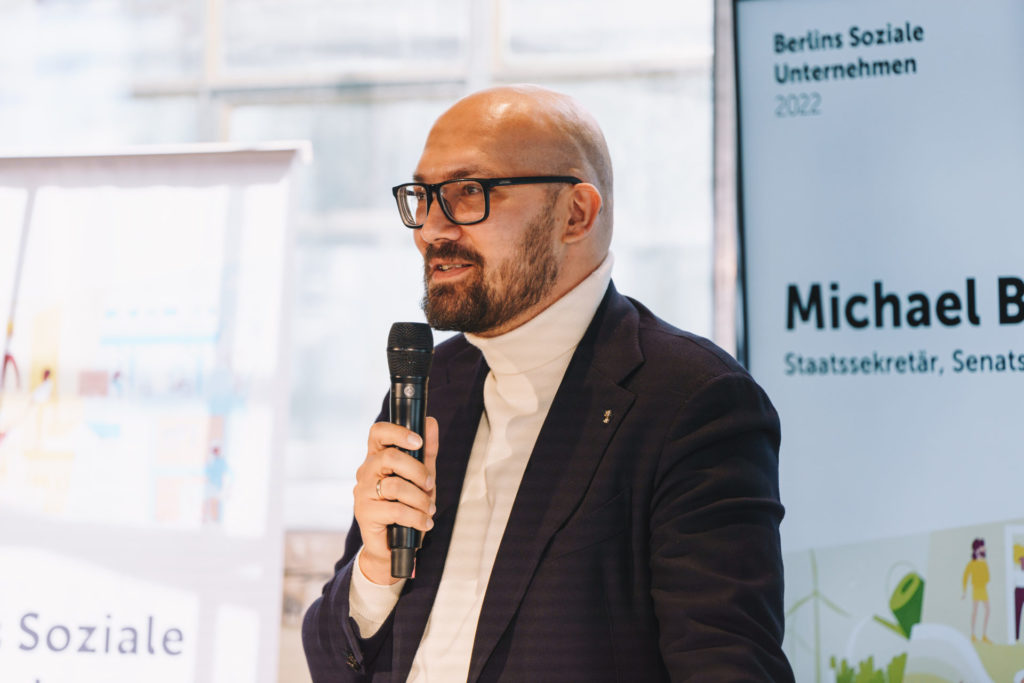
"The companies honored today and the entire competition with its numerous inspiring nominations impressively underline why Berlin is rightly described as a pioneer of the social economy,” said Michael Biel, State Secretary of the Senate Department for Economics, Energy and Public Enterprises and member of the jury.
“We want to further strengthen the development of social enterprises in our city and give their work greater visibility. The Berlins Soziale Unternehmen Award serves precisely this purpose. Today we honored Berlin's beacons of social economy for the first time and I congratulate all winners.”
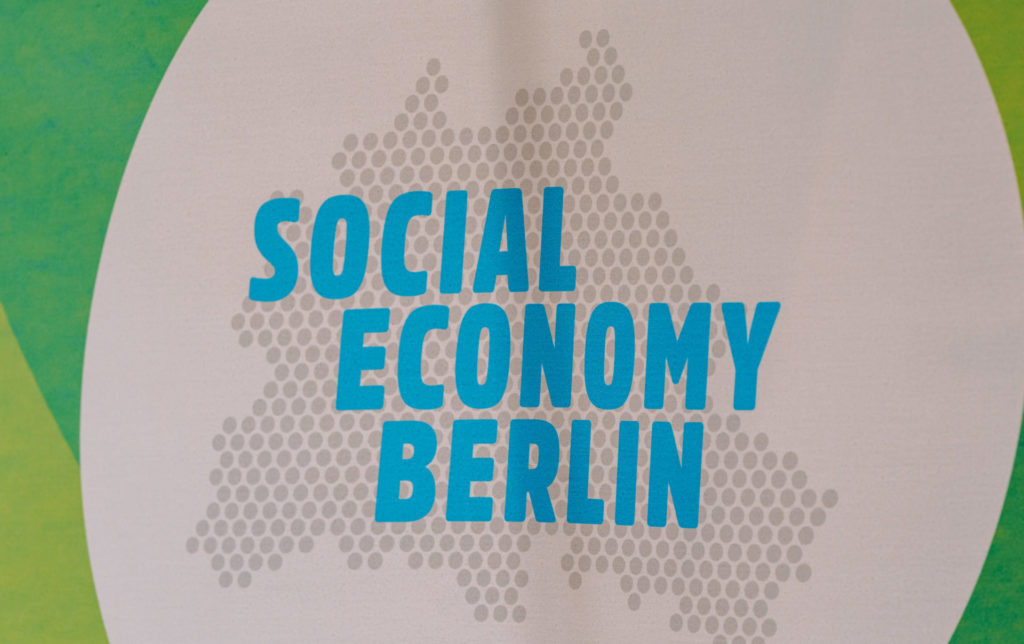
Why is it so important more businesses embrace social impact?
It’s becoming an indisputable fact – the world is changing, and business needs to change with it. The encroaching threat of the climate crisis has made it clear that many industries cannot operate in the same way they always have, and global attitudes towards consumption and industry are shifting towards more sustainable, eco-friendly and socially responsible options.
While on an individual level we can reduce our carbon footprint, make sure we dispose of trash properly, and buy local organic produce, it pales in comparison to the kinds of action big business can achieve through changes in their economic activity – especially when we consider that industries such as construction, energy and tech all contribute heavily to the ongoing global climate crisis.
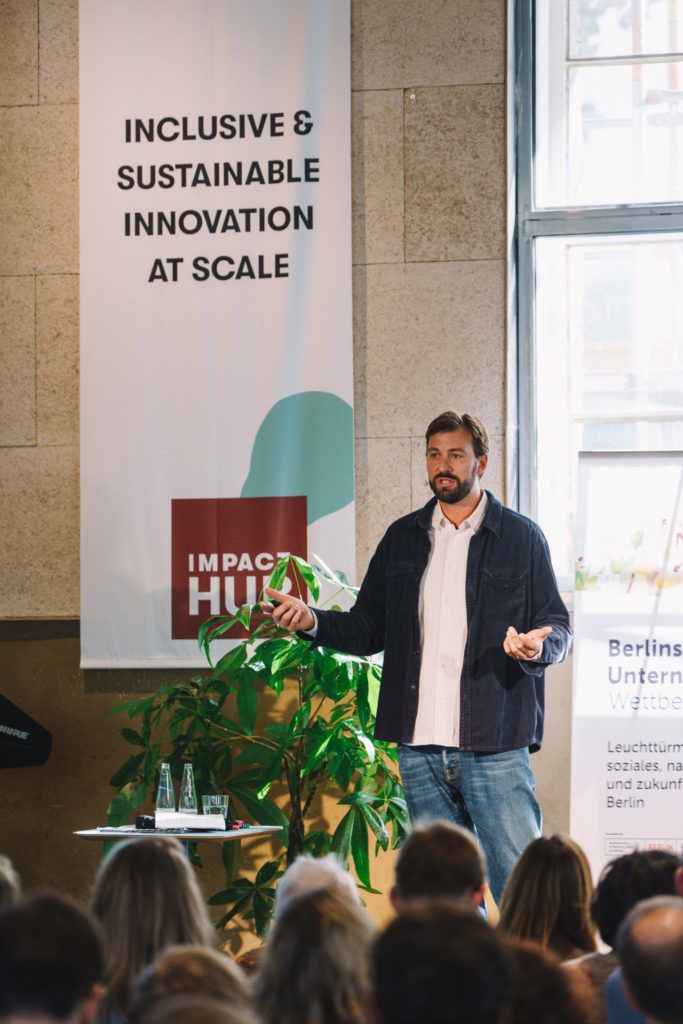
As a result it’s becoming increasingly important that both industrialized and emerging markets commit to creating a social impact through their business activities. A growing number of experts also predict that for-profit social enterprise is the impact model of the future. This means that social responsibility is baked into the foundation of a company’s business model, and becomes a large part of their economic activities. It is one of the ways industry can meaningfully tackle the world’s existential problems.
However for established for-profit enterprises, committing to action can be tricky but worth the energy it takes to implement. Partnering with impact initiatives provides many benefits for companies looking for a way to participate in sustainability, diversity and inclusion. These include:
- Increasing customer trust through action and positive social impact.
- Gaining new customers who are socially and environmentally conscious.
- Addressing social challenges that drive sustainable growth and benefit the world beyond the business.
- Being on the cutting edge: by supporting innovation through social impact business models, companies can be part of a better future.
- Start the conversation: by making a commitment to action, businesses can inspire others to do the same.
By partnering with impact initiatives, companies can transform into a force for good. Inclusivity and sustainability can offer a competitive advantage and create meaningful change.
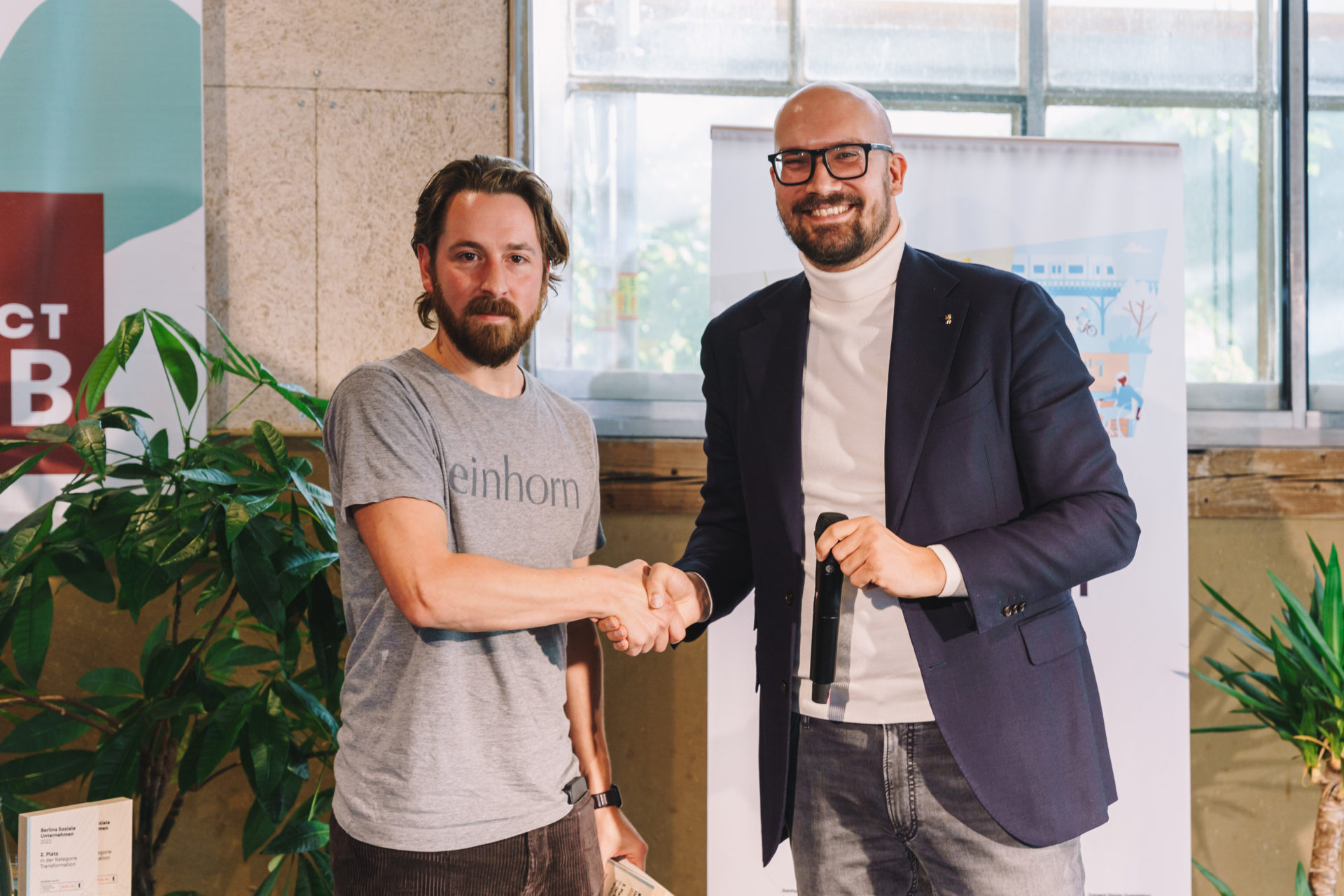
“Social enterprises are pioneers, visionaries and role models that show how a social and ecological way of doing business can succeed,” said Stephan Schwarz, Senator for Economics, Energy and Public Enterprises speaking about the Berlins Soziale Unternehmen Award. “They reinterpret their understanding of responsibility and bring it into the 21st century. With the award we want to recognize the special achievements of social enterprises and encourage others to follow this path.”
Real change can only be made through collaboration at all levels of economic activity. We all face the challenges presented by the climate crisis. This is why enterprises such as those highlighted by the Berlins Soziale Unternehmen Award are so important – they offer a brighter outlook on how businesses can create meaningful change, and set a precedent for what’s possible with both vision and the right partnerships.
Partner with us!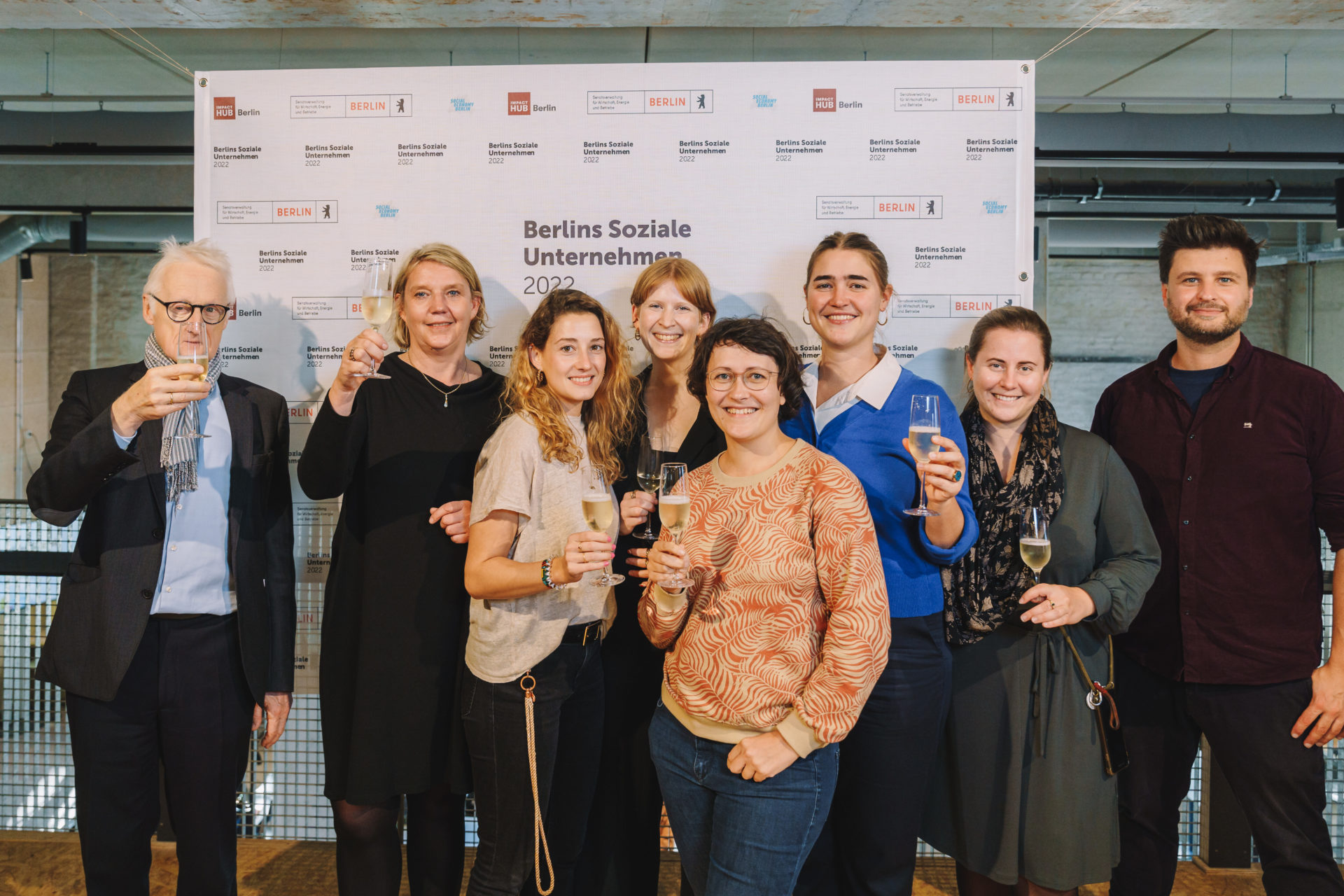

Content Writer
